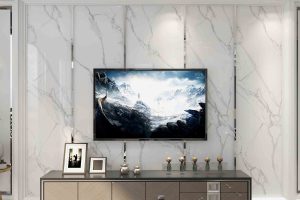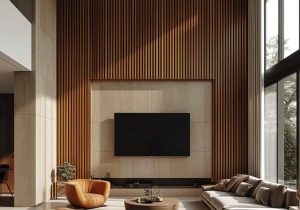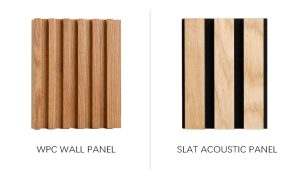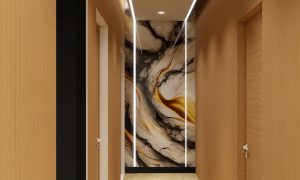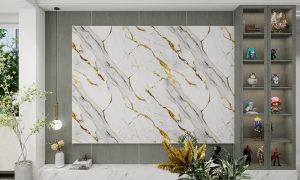When comparing PVC Marble Sheets and Bamboo Charcoal Wood Veneer, both materials offer distinct advantages for different applications, particularly in the decorative and construction industries. Below is an in-depth comparison from a B2B perspective, focusing on factors that can drive inquiries and business decisions.
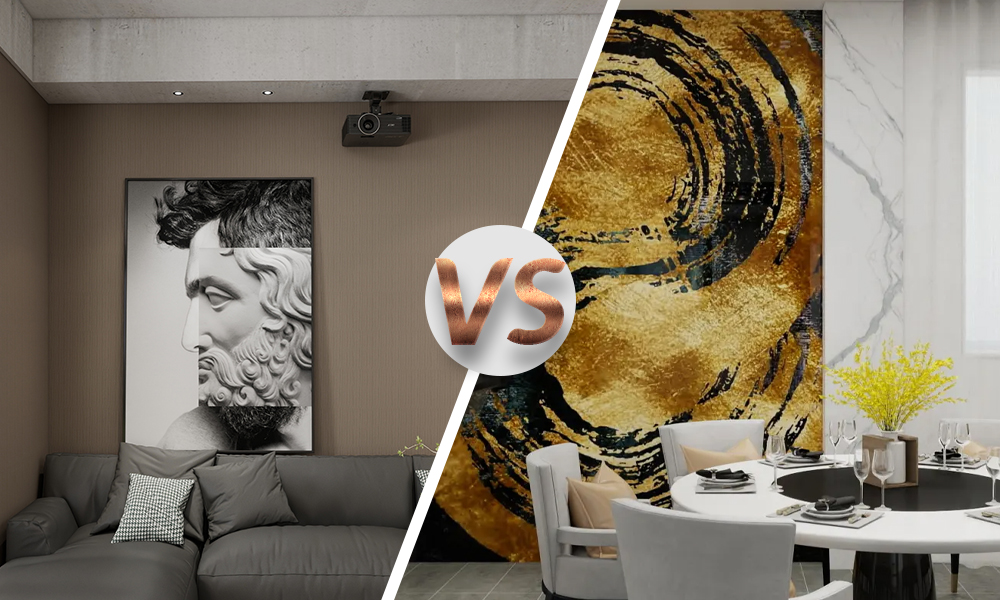
Material Composition and Technical Specifications
- PVC Marble Sheet:
- Base Material: Polyvinyl Chloride (PVC), often layered with a decorative film and protective coating.
- Thickness: Typically ranges from 1.5 mm to 4 mm.
- Weight: Lightweight, making it easy to handle and install.
- Surface Finish: Glossy or matte, with designs imitating marble or other stone surfaces.
- Performance: Excellent water resistance, flame retardancy, and corrosion resistance.
- Lifespan: Generally long-lasting, with a life expectancy of over 15 years in interior applications.
- Bamboo Charcoal Wood Veneer:
- Base Material: Compressed bamboo fibers infused with charcoal particles.
- Thickness: Typically between 0.6 mm and 2 mm, depending on the application.
- Weight: Heavier than PVC due to the density of bamboo fibers.
- Surface Finish: Smooth, with natural grain patterns similar to wood.
- Performance: Charcoal’s air-purifying properties contribute to healthier indoor environments by adsorbing odors, moisture, and volatile organic compounds (VOCs).
- Lifespan: High durability if well-maintained, with a life expectancy similar to natural wood products.
Performance in Various Environments
- PVC Marble Sheet:
- Moisture Resistance: 100% waterproof, making it ideal for wet environments such as bathrooms, kitchens, and even swimming pools.
- Temperature Resistance: It can withstand varying temperatures, but extreme heat over time can cause warping or discoloration.
- Chemical Resistance: Resistant to most household cleaning agents and chemicals, which makes it low maintenance and perfect for areas prone to spills or splashes.
- Installation: Easy to install using adhesives or mechanical fastening systems. It can be cut and shaped on-site without the need for specialized tools.
- Bamboo Charcoal Wood Veneer:
- Moisture Control: The charcoal within the veneer helps regulate humidity by absorbing excess moisture, which prevents mold and mildew growth in interior spaces.
- Temperature Resistance: Natural bamboo is fairly heat-resistant, but overexposure to sunlight or heat sources can cause discoloration or fading.
- Air Quality Improvement: Bamboo charcoal has the unique property of absorbing airborne pollutants such as formaldehyde and VOCs, which enhances indoor air quality—a critical advantage in office buildings, homes, or healthcare facilities.
- Installation: Installation requires more precision compared to PVC sheets, often using specialized adhesives or fasteners suitable for natural wood products.
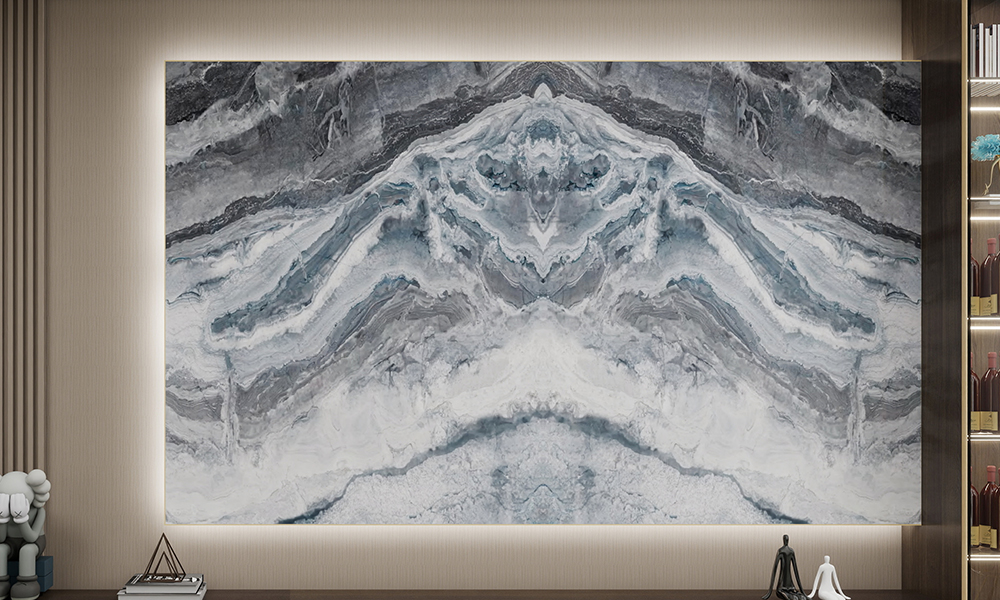
Sustainability and Environmental Impact
- PVC Marble Sheet:
- Raw Materials: Derived from petroleum-based PVC, which is not a renewable resource.
- Environmental Impact: PVC is durable but not biodegradable, raising concerns about long-term environmental impact. However, some manufacturers are focusing on recyclable PVC options.
- Energy Consumption: The manufacturing process of PVC involves significant energy consumption, and there are concerns about emissions of harmful substances during production and disposal.
- Green Certifications: PVC Marble Sheets may have limited potential for LEED (Leadership in Energy and Environmental Design) points due to their plastic origin, though recycling can mitigate this.
- Bamboo Charcoal Wood Veneer:
- Raw Materials: Made from bamboo, one of the fastest-growing renewable resources, which requires less land and water than traditional timber.
- Environmental Impact: Bamboo is fully biodegradable, and the charcoal used in the veneer helps in reducing indoor air pollution. Bamboo harvesting also involves less deforestation and environmental damage than other wood sources.
- Energy Consumption: Bamboo processing is energy-efficient compared to the extraction and refinement of PVC. Additionally, bamboo sequesters carbon during its growth cycle, helping reduce its carbon footprint.
- Green Certifications: Bamboo Charcoal Wood Veneer contributes to green building certifications like LEED due to its eco-friendly properties and air-purifying benefits.
Market Trends and Customer Preferences
- PVC Marble Sheet:
- Global Demand: The market for PVC Marble Sheets is strong, particularly in residential and commercial projects that demand cost-effective, easy-to-maintain decorative solutions.
- Customization: Clients appreciate the wide variety of colors, textures, and finishes available. The ability to customize designs (e.g., rare or exotic marble looks) without the high cost of natural stone is a significant draw.
- Applications in Emerging Markets: PVC sheets are becoming increasingly popular in emerging markets where clients seek budget-friendly alternatives to natural stone for construction and renovation projects.
- Bamboo Charcoal Wood Veneer:
- Eco-Friendly Building Boom: With growing awareness of sustainability and the push for green building materials, Bamboo Charcoal Wood Veneer is gaining popularity, especially in regions prioritizing eco-friendly construction.
- Air Quality Awareness: As more consumers and businesses become aware of indoor air quality, products that offer natural air purification (like bamboo charcoal) are becoming more attractive.
- Premium Positioning: Bamboo veneer is often marketed as a premium, eco-friendly option, appealing to upscale residential projects, green office buildings, and clients who prioritize health and sustainability.
Client Considerations and Decision Factors
- PVC Marble Sheet:
- Cost-Sensitive Clients: Ideal for clients seeking affordable, high-performance solutions that mimic luxury materials like marble.
- Quick Turnaround Projects: PVC’s ease of installation and low maintenance make it perfect for clients who need quick, practical solutions for renovation or new construction.
- High-Traffic Areas: Best suited for projects that involve commercial spaces where durability and water resistance are essential.
- Bamboo Charcoal Wood Veneer:
- Sustainability-Conscious Clients: Ideal for clients focused on green building practices, eco-certifications, and sustainability goals.
- Health-Conscious Environments: Suitable for health-focused clients such as hospitals, schools, and offices, where indoor air quality is a priority.
- Luxury Residential Projects: Perfect for high-end clients looking for natural materials with a warm, organic feel, paired with the unique benefits of bamboo and charcoal.
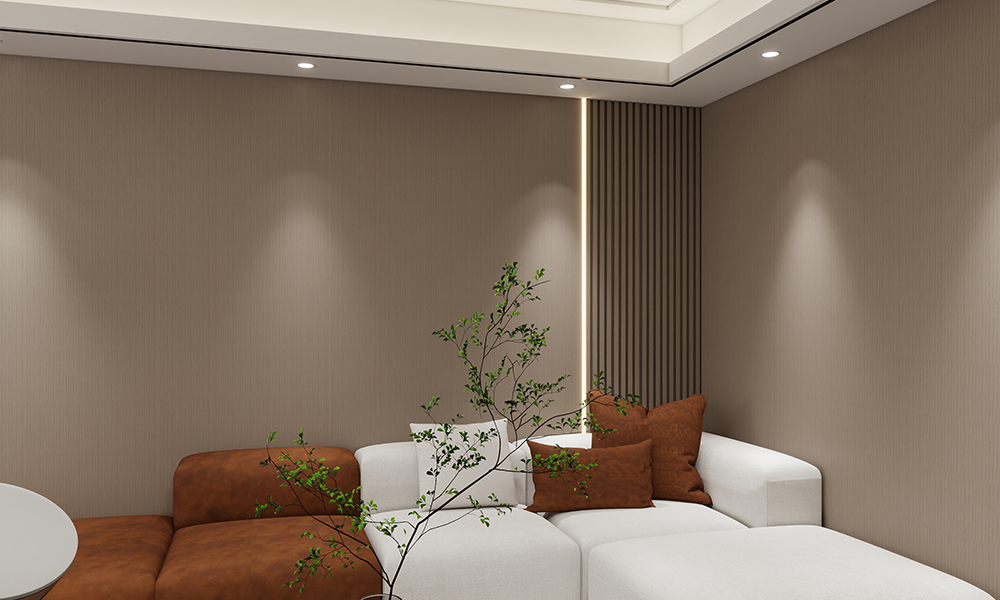
Pricing and Long-Term Value
- PVC Marble Sheet:
- Initial Cost: Typically less expensive than Bamboo Charcoal Wood Veneer, making it a go-to option for budget-conscious projects.
- Long-Term Value: Its low maintenance requirements and durability add to its value proposition, especially in commercial applications where upkeep costs can be a factor.
- Bamboo Charcoal Wood Veneer:
- Initial Cost: Higher upfront cost compared to PVC Marble Sheets due to the eco-friendly materials and additional processing for bamboo and charcoal.
- Long-Term Value: Bamboo veneer’s ability to improve indoor air quality and reduce the need for artificial air purifiers adds long-term value, especially for clients prioritizing health and sustainability.
Conclusion
The decision between PVC Marble Sheets and Bamboo Charcoal Wood Veneer ultimately depends on the client’s priorities. PVC Marble Sheets are perfect for projects that demand affordability, easy maintenance, and a sophisticated stone look. Meanwhile, Bamboo Charcoal Wood Veneer appeals to eco-conscious clients who value natural aesthetics, sustainability, and indoor air quality improvements.

